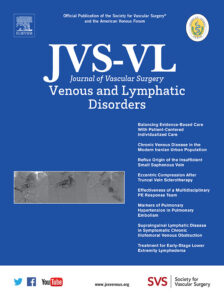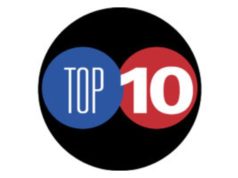
The Journal of Vascular Surgery: Venous and Lymphatic Disorders (JVS-VL) will move from a subscription model to one of open access—freely available online—on Jan. 1, 2024. JVS-VL is the journal for both the SVS and the American Venous Forum (AVF) and is celebrating its 10th year of publication.
The change is part of the larger overall adjustment to eliminating paywalls in scientific journals and making research accessible to all, said JVS-VL Editor-in-Chief Ruth L. Bush, MD, JD. Publishers make such decisions in part based on the number of print subscriptions versus electronic ones, as well as submission volume and impact factor. JVS-VL had already changed to electronic-only as of January 2023, as only 3.3% of AVF and SVS subscribers had a print subscription.
“I think this reflects changing habits and demographic changes,” Bush said of the move. “It’s about people’s choices and how they interact with the literature. And it’s environmentally friendly.”
“Open access removes restrictions and the science is available to everyone, not just those behind a privileged paywall,” she said. “Anyone with internet service can access the science.”
Bush and other editors have been accepting articles that will be part of the new open-access system since mid- August. The final non-open-access articles were published in November’s JVS-VL.
Under the new model
Readers will have immediate access to cutting-edge research from around the country and the world. Reviewers will see no change, continuing to “read articles critically, improve manuscripts and then make them available to the public.”
Authors will see both advantages and disadvantages, said Bush. Articles will be disseminated much more rapidly to the public and the science community. “As soon as an article is reviewed and accepted, after copyediting, it’s available to anyone around the globe,” Bush said. “We are accelerating the pace at which knowledge is available and, hopefully, positively influence citation behavior.”
However, under open access, authors pay an article processing charge, which, Bush acknowledged, may anger or concern some prospective contributors and could be a major barrier.
“However, we have in place various ways to help with the processing fee,” Bush said. “Reach out and ask.” Readers are asked to email [email protected] for more information.
In addition, many academic institutions have so-called “transformative agreements” with Elsevier, publisher of the JVS publications, to cover the charge. Her own institution in Texas covers a portion of the charges, as do many others, Bush said.
SVS members receive a 20% discount on the fee, and both the SVS and the AVF will subsidize the processing charge for authors of manuscripts accepted for the 2024 AVF annual meeting’s plenary sessions. Bush also pointed out that a fee split between five or six co-authors, even if it’s a total fee of $1,600, reduces the per-person fee to a more manageable level.
Open access also means the ability to reach out to people from other countries to be able to publish their work. “We’ll be more global,” said Bush.
JVS-VL is already truly a global journal, and a top-tier one for publications dedicated to venous and lymphatic disorders, she said. In 2022, 25% of articles came from China, and 35% from the U.S, with the balance from around the world.
“Whether the move is positive or negative, it’s where we are,” said Bush. “I am someone who fully believes, if we want our science to be appreciated, then everyone should have access to it.”
Learn more about open access, fees and more at www.jvsvenous.org.












